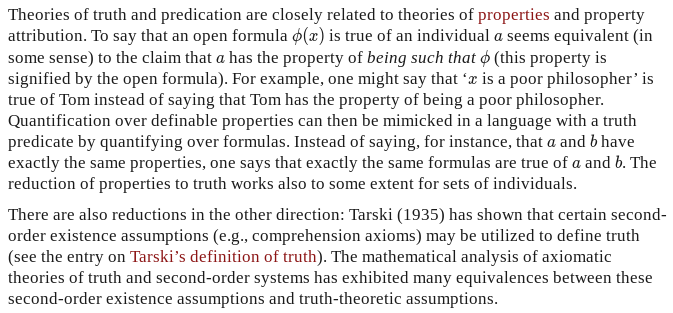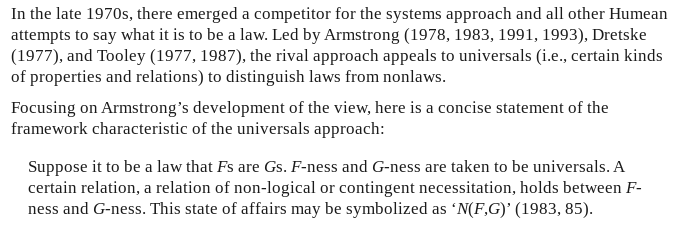This dialectic can be seen as an example of the difference between truth-conditional and property-conditional semantics. As the SEP article on axiomatic theories of truth puts it:

So when a law of nature is taken to be determinative, this is as if to say that the truth of sentences reporting these laws is established first, and then the properties (or states) of things are set according to such truth; when a law of nature is not determinative but merely determinate, here, we would read the relation in the other direction.
Another, similar (but not the same!) interpretation of the dialectic can be found in the SEP article on "laws of nature," where the determinative conception of laws can be seen as the conception appealing to universals:

Of course, neither what we might call the "bottom-up" nor the "top-down"π conception has won the day. The just-quoted article concludes:
How will matters progress? How can philosophy advance beyond the current disputes about laws of nature? Three issues are especially interesting and important ones. The first concerns whether lawhood is a part of the content of scientific theories. This is a question often asked about causation, but less frequently addressed about lawhood. Roberts offers an analogy in support of the thought that it is not: It is a postulate of Euclidean geometry that two points determine a line. But it is not part of the content of Euclidean geometry that this proposition is a postulate. Euclidean geometry is not a theory about postulates; it is a theory about points, lines, and planes … (2008, 92). This may be a plausible first step toward understanding the absence of some nomic terms from formal statements of scientific theories. The second issue is whether there are any contingent laws of nature. Necessitarians continue to work on filling in their view, while Humeans and others pay relatively little attention to what they are up to; new work needs to explain the source of the underlying commitments that divide these camps. Finally, more attention needs to be paid to the language used to report what are the laws and the language used to express the laws themselves and whether the laws explain. It is clear that recent disputes about generalizations in physics and the special sciences turn on precisely these matters, but exploring them may also pay dividends on central matters regarding ontology, realism vs. antirealism, and supervenience.
πTo try to avoid compromising on parsimony too much: does the arrangement of the world-whole's parts determine the world or does the world determine the arrangement of its parts? (Is asserting a world-whole less parsimonious than asserting just the parts?)


